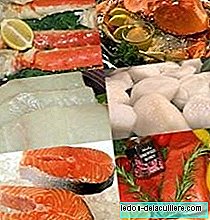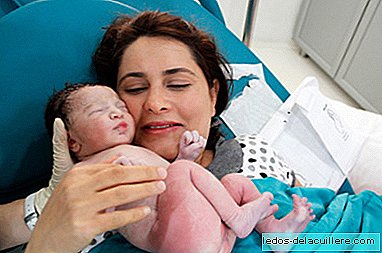
We have always been recommended that during pregnancy the consumption of fish and shellfish be limited due to the risk of contamination acquired by the fruits of the sea, especially methylmercury, since it passes to the human body and can cause damage to the fetus. This alert has even made many pregnant women not ingest even the minimum recommended amount, which has also harmed their baby, since fish and shellfish are necessary foods for the body for its contribution in omega-3 fatty acids, essential for a neuronal development of the appropriate fetus, proteins, vitamins and iodine.
We know a new study published in the medical journal The Lancet that finds more advantages than damages in the consumption of fish and shellfish during pregnancy. With data from the Avon Study of Parents and Children (ALSPAC), Joseph Hibbeln, from the National Institute of Health of Bethesda (USA) and experts from the University of Bristol, verified the incidence of the intake, major or minor, of fish and shellfish during pregnancy in the development of children, resulting in a consumption lower than 340 grams could cause a delay in the verbal development of the child compared to children whose mothers had ingested more.
They also found a relationship with lower social, communicative and motor development in children who, when they were in the womb, received less nutrients provided by fish and shellfish.
Surely, now, both health professionals and future moms, are in a dilemma, increase, limit or reduce the intake of seafood. What risk is preferable to run, methylmercury contamination or lack of omega3 fatty acids and other nutrients?












